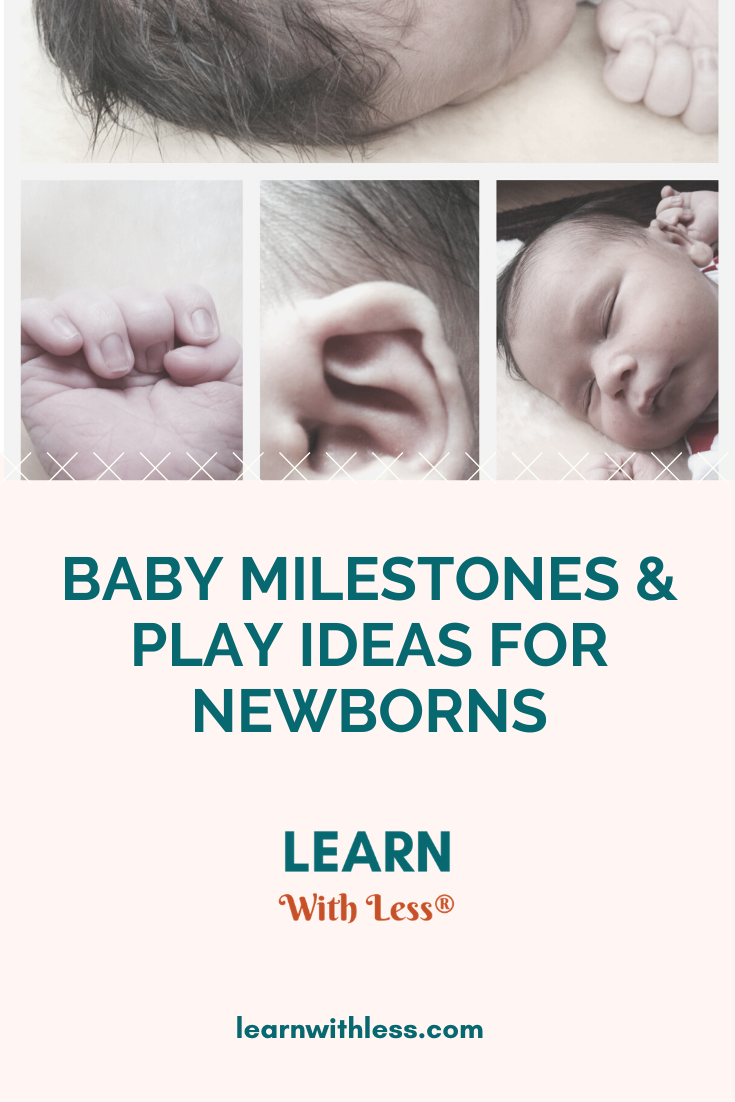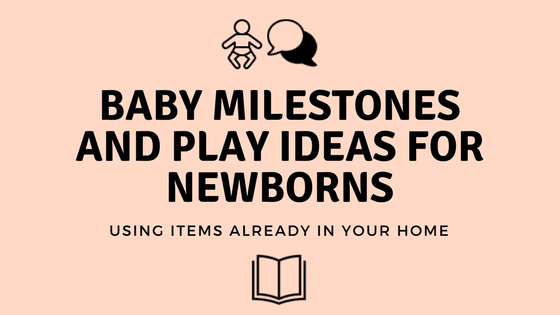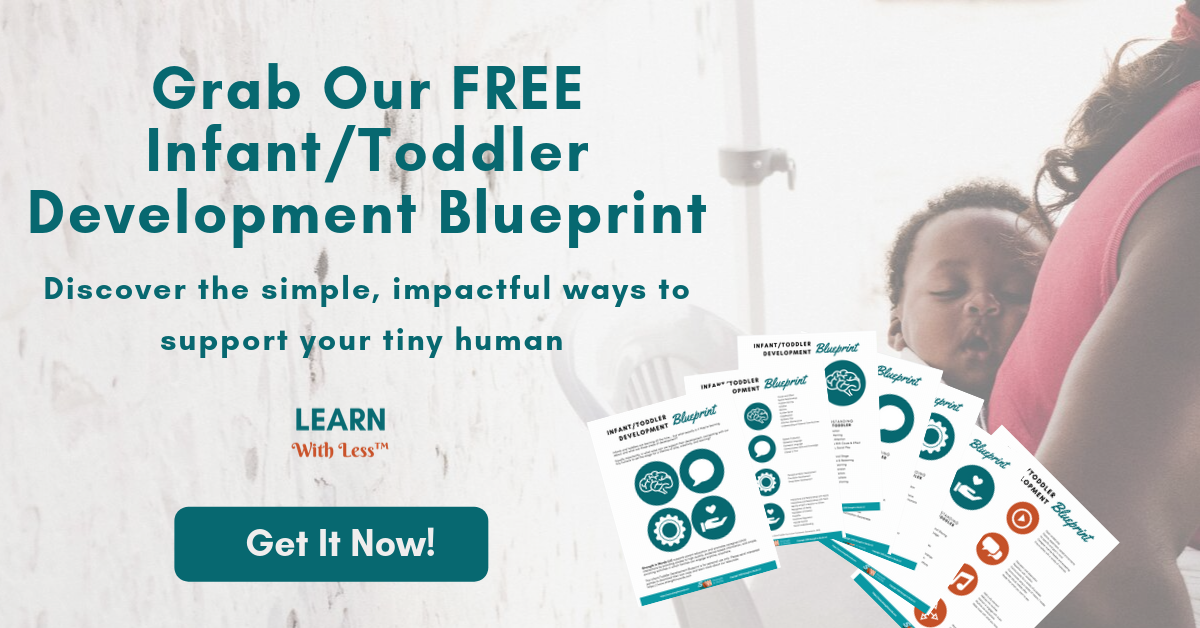“Play” with a newborn?
Your baby has entered the world making you a new parent. Welcome to the amazing, insane, incredible world of teaching tiny humans.
We know infants and toddlers learn through play. Did you know that you can play with a newborn?
When my first baby was born, my mom came to stay with us for a few weeks. She had a wonderful phrase that has stuck with me.
We’d sit and watch my tiny baby boy, and when he opened his eyes to look out onto the big, big world, she’d remark how amazing it was to “watch him become human.”
That’s what it is to have a new baby.
In between the diaper changing, the feeding, the snoozing, the weird meconium and ever-changing poop textures, we are engaged in the creation and evolution of a tiny human.
So much of our time learning to become parents is spent feeling vulnerable, but I want to help you understand that you’re probably already doing so much of what your baby needs to learn and develop.

What are some baby milestones in the first few months?
In the first days, weeks and months, your baby responds to the environment by taking in information through every sense (perhaps paying most attention to sounds, as their auditory or “hearing” sense is quite robust from the very beginning)!
Your baby is learning about the world through movement. Most likely, your baby is happiest exploring the world while touching or in contact with you.
Around the age of 6 weeks, babies often start to smile back to us purposefully. This is called a “social smile,” meaning that it’s purposeful and imitative!
Very young babies also display preferences – to sounds or light, to their position or the other input they receive from the environment.
They start to let us know whether they are unhappy, but also when they are pleased, from around 6 weeks – when they realize that their cry results in a response from the caregiver!
Developmental play ideas for newborns
Yes, play. We can play with our tiniest humans… but it doesn’t always look like our adult conception of “play.” We have to consider what kind of stimulation our babies want, how much they can handle, and what we can do to determine that!
Babies take in information through senses, especially through hearing
You may know that even in utero, your baby was able to hear. By the time your baby is born, your voice is already a familiar entity! That means that your baby instinctually prefers hearing your voice.
When we sing, speak, hum, chant nursery rhymes, or chat with our babies, we are providing comfort, familiarizing our babies with the language(s) in the home and community. We are providing information for our babies to analyze.
Learn more about how your baby is a statistician
Babies learn through movement
Holding your baby in your arms or placing your baby on a safe, flat surface near you (on his back, side, or tummy) provides your baby with the opportunity to explore different positions, movements, and the environment.
Learn more about making tummy time fun
Learn more about how babies learn through movement
Babies smile socially
We teach our tiny humans by giving them opportunities to observe, imitate and interact with us. When we play with our voices (changing the pitch, rate or pace), we give our tiny babies something interesting to attend to. When we smile at our babies, we show them how we express pleasure (and we often speak in loving tones when we smile – who doesn’t want to be spoken to so sweetly?).
Learn more about the ways we can play with words
Learn more about infant-directed speech
Babies display preferences
When we react to a cry, grimace, smile, grunt, eye movement, etc., we assume our baby’s intentionality – this means that we teach our tiny human more about cause and effect. The next time your baby cries out, try saying out loud what you think she’s trying to tell you: “you don’t want to be on the mat any more! Maybe you want to be in my arms!” or “you liked that song! Let’s sing it again!”
Learn more about assuming intentionality
Learn more about building relationships and creating happiness

